4-(6-氨基-2-(2-甲氧基乙氧基)嘌呤)苯甲腈毕业论文
2020-04-22 19:44:20
摘 要
TLR7激动剂作为一种研究免疫领域热点的常用激动剂,在病毒感染疾病、肿瘤免疫治疗中发挥了举足轻重的作用。然而虽然TLR7激动剂应用广泛,但治疗效果不一,有一些甚至会加重病情。免疫不识别通常是肿瘤免疫治疗失败的根本原因。本文以研究一种新型的TLR7激动剂的重要中间体4-(6-氨基-2-(2-甲氧基乙氧基)嘌呤)苯甲腈,其最终的产物将其与抗原结合,开发出安全有效的免疫治疗疫苗。
以2,6-二氯嘌呤,(4-溴甲基)苯甲腈为原料,加入一定量碳酸钾,反应生成4-(2,6-二氯嘌呤-9-基甲基)苯甲腈。通过改变实验方法,重点考察实验温度、反应投料比对实验的影响;接下来以第一步的反应产物和甲醇氨溶液进行反应,重点考察反应投料比对实验的影响;最后我们用上一步的产物和金属钠以及乙二醇甲醚,在确保实验安全的前提下,对实验条件进行优化。
最终,我们得到了收率57.4%的最终产物4-(6-氨基-2-(2-甲氧基乙氧基)嘌呤)苯甲腈,并完成了对其的表征鉴定。
关键词:TLR7 激动剂 免疫治疗 条件优化
ABSTRACT
As a commonly used agonist in the field of immunology, TLR7 agonists play an important role in viral infection and tumor immunotherapy. However, although TLR7 agonists are widely used, the effects are not the same, and some may even worsen the condition. Immunization is not recognized as the root cause of tumor immunotherapy failure. In this paper, we will study 4-(6-amino-2-(2-methoxyethoxy)purine) benzonitrile, an important intermediate of a novel TLR7 agonist, and its final product will be combined with antigen to develop A safe and effective immunotherapy vaccine.
4-(2,6-dichloropurine-9-methyl) Benzonitrile was synthesized from 2,6-dichloropurine and (4-bromomethyl) Benzonitrile by adding certain amount of potassium carbonate. By changing the experimental method, the effects of the experimental temperature and the ratio of reactants on the experiment were investigated. Next, the reaction product of the first step and the methanol ammonia solution were used to carry out the reaction, and the influence of the reaction ratio on the experiment was mainly investigated. Finally, we used the previous step. The product and sodium metal and ethylene glycol methyl ether were optimized for experimental conditions while ensuring the safety of the experiment.
Finally, we obtained the final product 4-(6-amino-2-(2-methoxyethoxy)indole) benzonitrile in a yield of 57.4% and completed the characterization thereof.
KEYWORDS: TLR7
agonist immunotherapy
experimental optimization
目 录
摘要 I
ABSTRACT II
第一章 前言 1
1.1 课题背景 1
1.1.1 激动剂的介绍 1
1.1.2 TLR系列的相关介绍 1
1.1.3 TLR家族系列研究历史 2
1.1.4 TLR7激动剂不同种类及其介绍 2
1.2 TLR7激动剂的应用 4
1.2.1 TLR7激动剂的抗病毒作用 4
1.2.2 TLR7在治疗肿瘤免疫中的作用 6
1.3 本课题研究方向 7
1.3.1 课题研究思路 7
1.3.2 本课题研究内容 8
第二章 实验部分 9
2.1 试剂和仪器 9
2.2 实验内容 10
2.2.1 4-(2,6-二氯嘌呤-9-基甲基)苯甲腈的合成 10
2.2.2 4-(6-氨基-2-氯嘌呤-9-基甲基)苯甲腈的合成 11
2.2.3 4-(6-氨基-2-(2-甲氧基乙氧基)嘌呤)苯甲腈的合成 12
第三章 结果与讨论 13
3.1 合成4-(2,6-二氯嘌呤-9-基甲基)苯甲腈的结果与讨论 13
3.1.1 反应机理的研究 13
3.1.2 实验条件的优化 13
3.1.3 数据表证与分析 15
3.2 合成4-(6-氨基-2-氯嘌呤-9-基甲基)苯甲腈的结果与讨论 17
3.2.1反应机理的研究 17
3.2.2 实验条件的优化 17
3.2.3 数据表征与分析 18
3.3合成4-(6-氨基-2-(2-甲氧基乙氧基)嘌呤)苯甲腈的结果与讨论 20
3.3.1反应机理的研究 20
3.3.2实验条件的优化 20
3.3.3数据表证与分析 21
第四章 结论 23
参考文献 24
致谢 26
前言
1.1 课题背景
激动剂的介绍
激动剂(agonist)[1],在医学界又被称为兴奋剂。它是一种不仅能够增强细胞活性,还能够促进一系列反应的药物和激素类的分子。激动剂除了完全激动剂,也存在部分激动剂这一类别。
完全激动剂具有高活性和高亲和力的特点,其效果能产生较强的效应,前提则是与受体结合。而部分激动剂所产生的效应则达不到这一高度。
TLR系列的相关介绍
Toll样受体(Toll like receptor,简称TLR),是一类天然的免疫受体[2]。随着进一步的研究深入,科学家除了从果蝇胚胎背和腹侧发育中,在哺乳动物体内,也发现了很多类似的同源性受体,我们将他们统一归并为TLR家族。TLR分布广泛,凸显在巨噬细胞和单核细胞等细胞表面,它们具有直接识别,并经过一定阶段和病原体相结合的能力,其产物的特定分子结构,也就是病原相关分子模式,就不同的病原相关分子模式,进行识别与结合,继而导致一系列信号的传导,释放一些炎性介质,在天然免疫中起着去足轻重的作用,最终也会形成免疫系统。
相关图片展示:
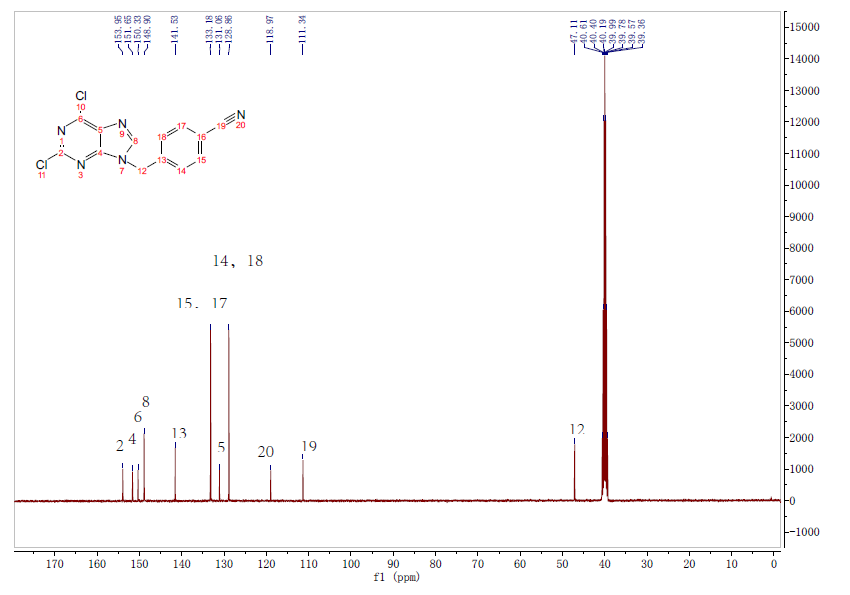

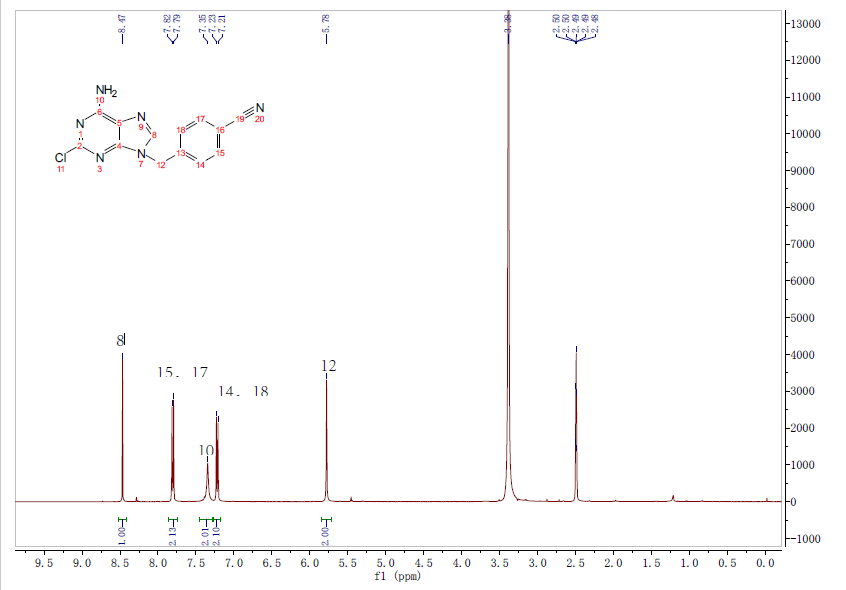
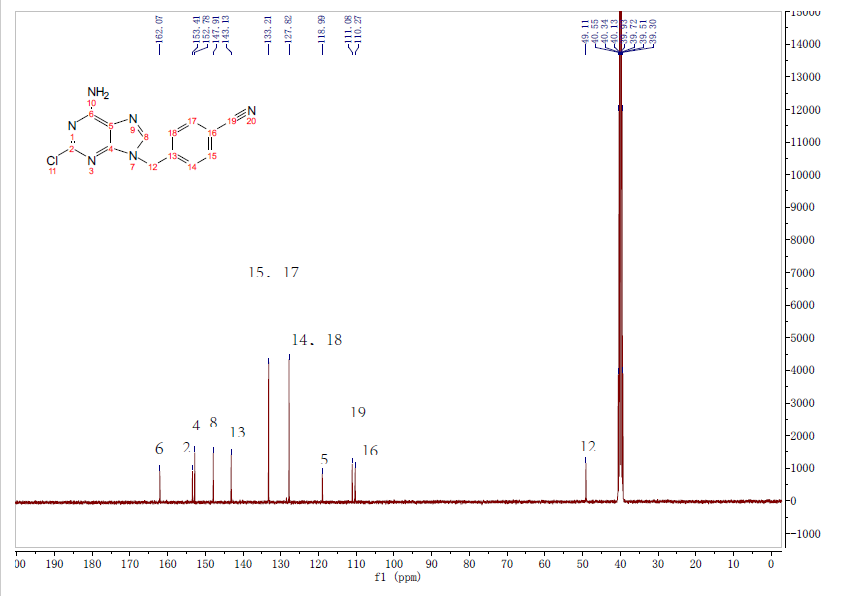
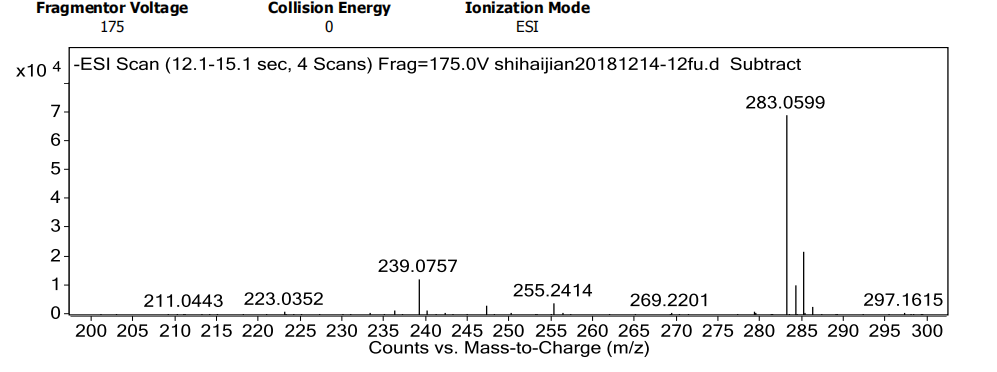
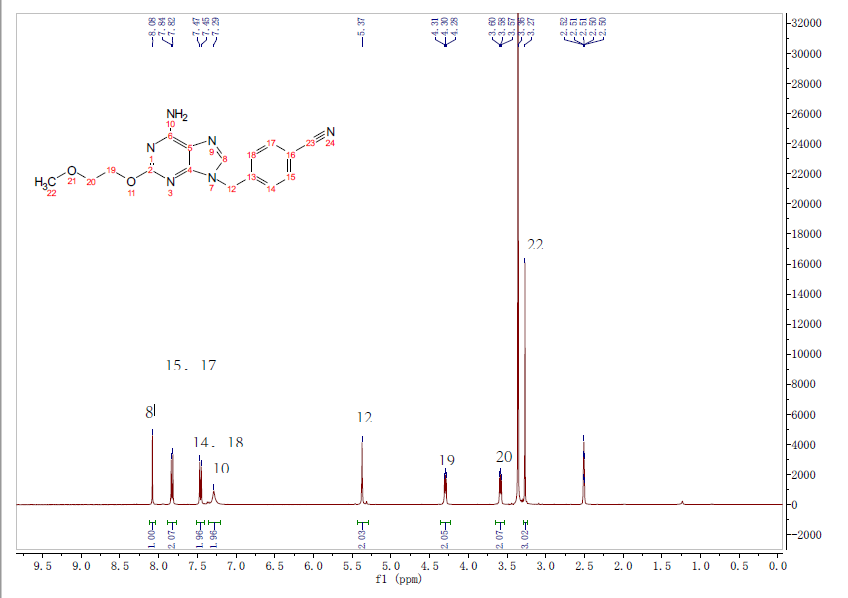
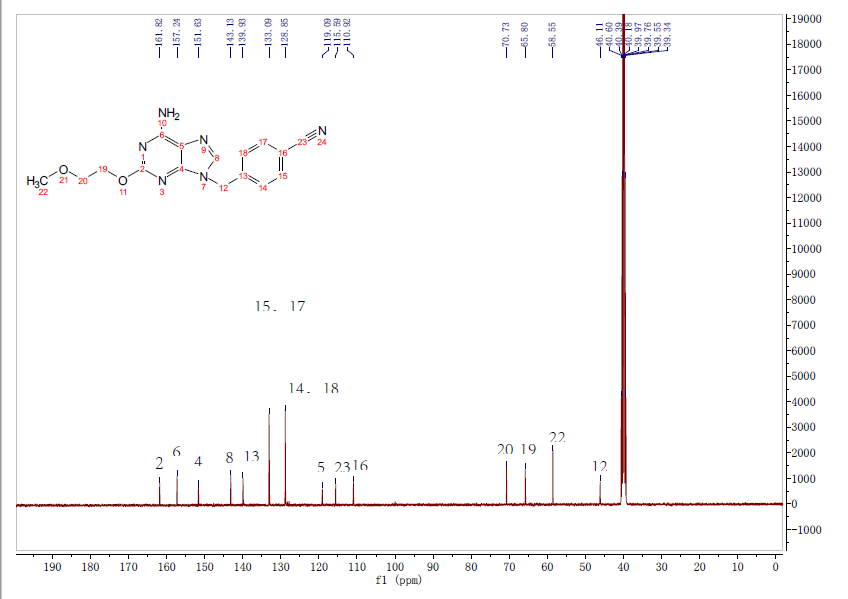
课题毕业论文、开题报告、任务书、外文翻译、程序设计、图纸设计等资料可联系客服协助查找。



